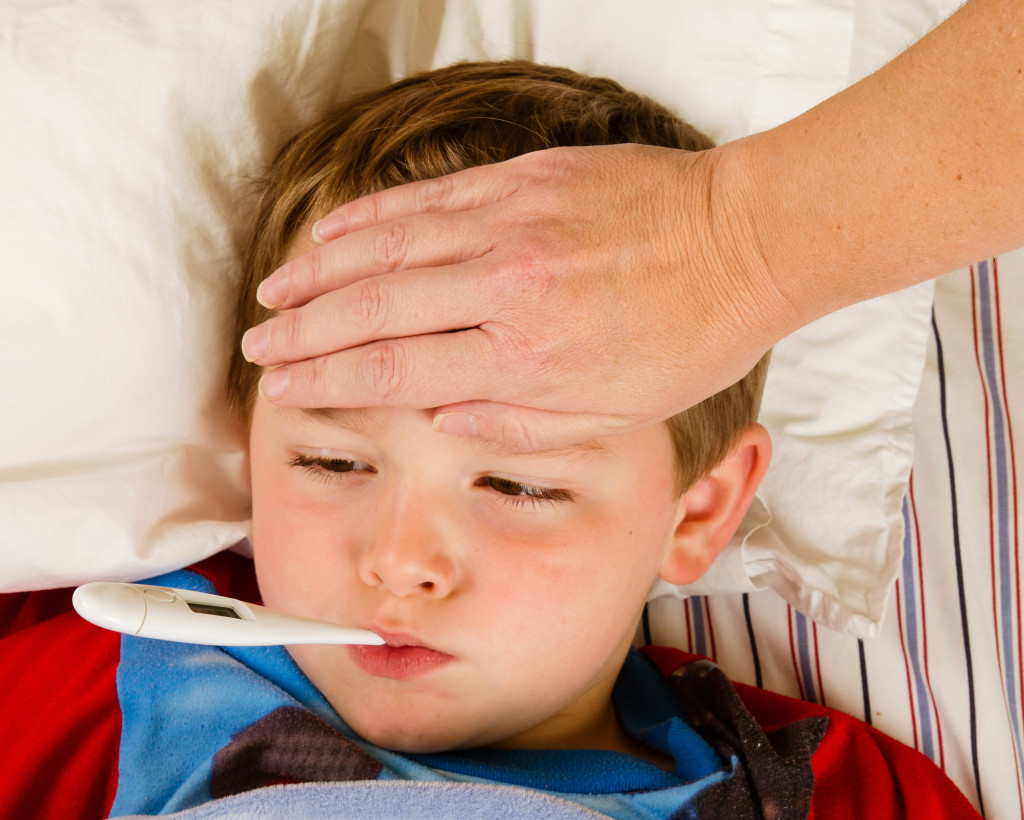As a parent, you want to do everything you can to keep your family healthy. But even with the best intentions, sometimes illnesses happen. So, parents need to know how to deal with common illnesses in the family. Here are some tips on how to deal with some of the most common diseases in families.
The Cold
The cold is among the most common illnesses and can be caused by various viruses. It is spread through coughing, sneezing, and contact with contaminated surfaces. The best way to prevent a cold is by washing your hands frequently and avoiding close contact with sick people. If someone in your family does get a cold, there are some things you can do to help them feel better. These include:
- Giving them lots of fluids. This will help them stay hydrated and thin out mucus, so it’s easier for them to breathe.
- Making sure they rest. Their body needs to have time to heal.
- Using a humidifier or steam vaporizer can help with congestion. Just clean it regularly, so it doesn’t become a breeding ground for bacteria.
- Giving them over-the-counter medications such as decongestants or cough suppressants to help with symptoms.
It is important to remember that a cold is rarely serious and will usually go away on its own in a few days. However, if you are concerned about your loved one’s health, it is always best to talk to your doctor. By dealing with colds and other illnesses in your family, you can help them feel better quickly and safely.

Influenza or Flu
The flu is a highly contagious virus that can cause fever, body aches, and congestion. It can be hazardous for young children, the elderly, and those with compromised immune systems. It is essential to take steps to prevent the flu and to deal with it quickly if it does occur.
Here are some ways to deal with the flu:
- One of the best ways to prevent the flu is to get a flu shot every year.
- You should also wash your hands and avoid close contact with sick people.
- If you get the flu, you should stay home from work or school and rest until you feel better.
- Drink plenty of fluids.
- Take over-the-counter medications to help relieve your symptoms.
It is very important to deal with the flu quickly, so it does not become more serious. See your doctor immediately if you are significantly ill or have a high fever.
Stomach Bugs
Stomach bugs are usually caused by bacteria or viruses. They are spread through contaminated food or water or contact with someone sick (for example, shaking hands after using the restroom without washing first). The best way to prevent stomach bugs is by practicing good hygiene. You should wash your hands often, especially before preparing food or eating, and clean surfaces that may have become contaminated. If someone in your family does get a stomach bug, there are some things you can do to help them feel better, such as:
- Give them clear liquids like water, sports drinks, or ginger ale to stay hydrated. Drink plenty of water yourself so you don’t become dehydrated since caring for a sick person can be taxing.
- Encourage them to eat small, frequent meals rather than three large ones. Avoid fatty, spicy, or sugary foods until they’re feeling better since they may aggravate their symptoms.
- Avoid dairy products since they may contribute to nausea and vomiting.
The health of a family is essential as it can affect the entire household. When someone in the family is not feeling well, it can be tough to get through the day. This is why it is essential to take care of your family’s health by getting vaccinated and practicing good hygiene habits.
Vaccines are vital as they can help prevent the spread of common illnesses like the flu, chicken pox, and measles. You are protecting yourself and your loved ones from these illnesses by getting vaccinated. Practicing good hygiene habits like washing your hands regularly and disinfecting surfaces is also important. This can help prevent the spread of germs and keep everyone in the family healthy.
Families should also take care of their oral health. Studies have shown that oral health issues can affect your overall health. So, you should brush and floss regularly. You should also regularly visit a reputable dentist’s office for cleanings and checkups. This can help prevent gingivitis, cavities, and other dental problems.
Caring for a sick family member can be challenging, but knowing what to do can make it easier. If someone in your family has a cold, flu, or stomach bug, remember to give them lots of fluids. You should also make sure they rest, use a humidifier if possible, and consult a doctor if their symptoms worsen or don’t improve after a few days. Following these tips can help your loved ones feel better while keeping everyone else healthy.

